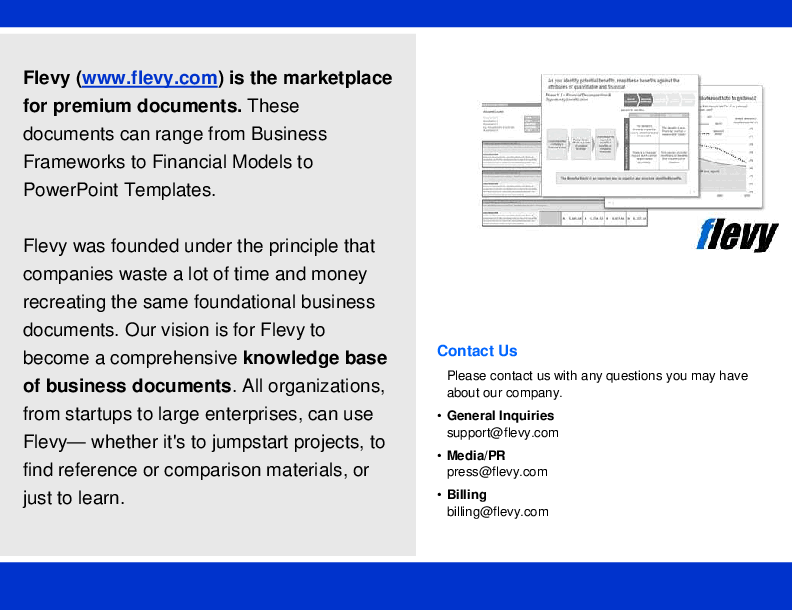Data Center (Co-Location) Development Model Pro-forma (Excel XLSM)
Excel (XLSM)
BENEFITS OF THIS EXCEL DOCUMENT
- This Real Estate Template tool is tailored for the nuanced analysis of building, operating, and disposing of a Data Center properties. It's versatile enough to handle properties with varied income potential.
DATA CENTER EXCEL DESCRIPTION
This detailed and user-friendly Excel spreadsheet template provides a comprehensive and dynamic real estate financial model for the development of data centers whose primary revenue streams revolve around the lease of racks. The model is designed to evaluate the investment viability of data center properties based on cash flow projections, from the ground up, ramp period, and eventual property sale.
Model Features:
Dynamic Cash Flow Analysis: With detailed monthly and annual projections, this model computes essential investment metrics to gauge the project's feasibility and potential resale value.
Development-Phase Forecasting: Acknowledging revenue constraints during construction, the model integrates a lease-up forecast that capitalizes construction loan interest, reflecting realistic financial conditions.
S-Curve Construction Budgeting: The model adopts an ‘s-curve' distribution to simulate construction expenses, allowing for an accurate representation of the initial slow spending, accelerating to peak expenditure as the project progresses.
Debt Options:
The model is designed with four customizable debt financing options to suit various project requirements:
• Construction Loan: This is typically the primary loan used during the construction phase of a project.
• Mezzanine Loan: This is a subordinate loan that is optional and can be utilized for additional financing.
• Permanent Debt: This represents the long-term financing used once the construction phase is completed.
• Refinancing Option: This allows for the restructuring of permanent debt to potentially secure more favorable terms.
Capital Stack Framework:
• Sequential Funding Strategy: Funding draws occur in a tiered approach—equity first, followed by mezzanine debt, if any, and finally, the construction loan, mirroring industry-standard financing structures.
• Mezzanine Loan Structure: This subordinate financing layer is designed to fill funding gaps, with flexible interest payment options linked to operational cash flow and provisions for capitalization of unpaid interest.
• Construction Loan Dynamics: Upon exhaustion of prior funding layers, the construction loan activates with interest treatment options aligned with cash flow realities, ensuring a practical financial plan.
• Permanent Loan Conversion:** On transition to permanent financing, outstanding construction and mezzanine debts are settled, with visual alerts for any funding deficits, ensuring immediate awareness and action.
Equity Waterfall Analysis:
The waterfall distribution function offers users the flexibility to select between two to four tiers for the allocation of capital among limited and general partners. This feature enhances clarity in the articulation of investment returns and the equitable distribution of partnership equity stakes.
Instructions:
• The user must input information only into the cells formatted with the dark blue font on the ‘Investment Summary' and ‘Assumptions' sheets. Cells containing black text indicate the presence of a formula.
• This template includes data from a hypothetical property for demonstration purposes, which should be removed when evaluating an actual property.
• The ‘Investment Summary' sheet offers a snapshot of the property, incorporating various essential metrics and assumptions.
• The user can establish the additional parameters within the ‘Assumptions' sheet.
• The model is crafted to capitalize the Net Operating Income (NOI) of the 12 months after those of the disposition, dividing it by the stipulated exit cap rate to deduce the sale value.
• The maximum time frame this model accommodates is ten (10) years.
• For the ‘Construction Budget,' the user must allocate the budget across various categories listed in the ‘Assumptions' sheet.
This model not only streamlines the financial planning process, but also provides a clear pathway for assessing the profitability of your data center investments. With robust forecasting tools and customizable debt options, it empowers executives to make informed decisions that align with their strategic objectives.
Got a question about the product? Email us at support@flevy.com or ask the author directly by using the "Ask the Author a Question" form. If you cannot view the preview above this document description, go here to view the large preview instead.
Source: Best Practices in Data Center, Integrated Financial Model Excel: Data Center (Co-Location) Development Model Pro-forma Excel (XLSM) Spreadsheet, Jair Almeida









